
Philippine President Rodrigo Duterte.
Photo courtesy of the Presidential Communications Office
February 18, 2020 By Mark J. Valencia
The decision by Philippines President Rodrigo Duterte to terminate its Visiting Forces Agreement (VFA) with its U.S. ally has elicited a cacophony of wailing and gnashing of teeth in the US foreign policy community. This initial reaction may soon be followed by recriminations regarding “who lost the Philippines’. But Duterte’s move to officially distance the Philippines from the US militarily was long in coming and should have been foreseen. Indeed, this particular US foreign policy failure is the inevitable result of blinkered diplomatic ignorance and arrogance.
The context is important. The US military has had a presence in the Philippines at least since the transfer of colonial rule from Spain in 1898. The Philippines was an American colony from 1898 to its independence in 1946. Since 1951 the Philippines and the U.S. have had a Mutual Defense Treaty (MDT) which under certain conditions provides that each would support the other if one were attacked by a third party. Under this arrangement the U.S. had large bases in the Philippines of strategic importance to its continued regional dominance– Subic naval base and Clark air force base. But many Filipinos considered them evidence of US imperialism and wanted them closed. https://quizlet.com/64789103/wh-chapter-342-the-colonies-become-new-nations-section-2-southeast-asian-nations-gain-independence-flash-cards/
In 1992, the Philippines evicted the troops. In 1999 the VFA was negotiated to provide the framework for deployment of US forces in the country. https://en.wikipedia.org/wiki/Visiting_Forces_Agreement_(Philippines_%E2%80%93_United_States) In 2016, a supplement to the VFA was negotiated –the Enhanced Defense Cooperation Agreement–to allow the U.S. to rotate troops into the Philippines and to build and operate facilities on Philippine bases. It has been slow in its implementation and anyway the abrogation of the VFA may make it moot.
The reactions of US Asia policy wonks to this current development ranges from panicky predictions of a serious blow to the U.S. hub and spoke alliance system in Asia- as well as its war against terror https://www.trtworld.com/magazine/shunning-the-us-who-will-the-philippines-turn-to-next-33725 – to ‘don’t worry, this – and the Duterte administration – will pass. https://www.heritage.org/asia/commentary/lets-keep-our-nerve-us-philippines-relations
Brad Glosserman writing in the Japan Times asserts that the 1999 VFA is essential to the implementation of the MDT. https://www.japantimes.co.jp/opinion/2020/02/12/commentary/japan-commentary/duterte-poised-shake-regional-security-order/#.XkdQtShKiAQ This was corroborated by Philippines Foreign Secretary Teodoro Locsin Jr. who indicated that ‘without the VFA, the MDT would be “hollow” and the EDCA “practically useless”. https://globalnation.inquirer.net/185263/us-wrong-move-to-end-vfa-amid-china-buildup
Derek Grossman of Rand thinks the collapse of the alliance would send the “message to Washington’s remaining allies and partners that you simply shouldn’t trust that the US will defend or assist you against China. https://www.scmp.com/week-asia/politics/article/3050833/ending-philippines-us-military-pact-will-affect-south-china-sea
James Holmes of the Naval War College thinks terminating the VFA “could ripple throughout Southeast Asia to the detriment of _ _ US maritime strategy toward China”. https://nationalinterest.org/blog/buzz/us-philippines-alliance-dying-123841 But he also thinks both sides are bluffing and that they need each other enough that a deal will be struck.
When the possibility of a downturn in US-Philippines military relations first arose, Satu Limaye, the director of the East-West Center in Washington did not think the alliance was in danger of unraveling. He dismissed the possibility saying “US-Philippines relations have weathered far worse than the current tempest.” https://www.philstar.com/other-sections/news-feature/2019/03/01/1897753/commentary-renegotiated-mutual-defense-treaty-neither-simple-nor-panacea-bilateral-ties#jFfgBvXZhzk6vrsV.99
Nevertheless some in the US government are worried. According to Mark Esper the Secretary of Defense “I do think it would be a move in the wrong direction as we both_ _are trying to say to the Chinese: ‘You must obey the international rules of order.”
https://globalnation.inquirer.net/185263/us-wrong-move-to-end-vfa-amid-china-buildup#ixzz6DzoSL9wZ
Indo-Pacific Commander Admiral Phil Davidson fears that ending the defence relationship would undermine the counter terrorism campaign in the Philippines south. https://www.scmp.com/news/asia/australasia/article/3050435/china-threatens-pacific-stability-us-commander-warns-citing The US embassy in Manila said that the withdrawal is “a serious step with significant implications.” https://www.latimes.com/world-nation/story/2020-02-11/philippines-notifies-us-of-intent-to-end-major-security-pact
On the other hand, US President Donald Trump’s response was to welcome it. He said nonchalantly “I don’t really mind if they would like to do that, it will save a lot of money.” https://www.nytimes.com/reuters/2020/02/12/world/asia/12reuters-philippines-usa-defense-trump.html But Amy Searight, former deputy assistant secretary of defence for South and Southeast Asia said “Trumps’ willingness to let it end certainly hurts US credibility”.
Supposedly, the proximate cause of Duterte making good on his standing threat to disengage militarily from the U.S. was the US denial of a visa for his ex police chief because he had been in charge of Duterte’s war against drugs. But if so, this was just the straw that broke the camel’s back. This foreign policy disaster was long in the making and involved generations of US foreign policy makers and ‘experts’. Not only did they just not ‘get it’–that is, the underlying cause and depth of Duterte’s personal angst– but they failed to recognize that the roots of the problem were — American cultural hubris and diplomatic heavy handedness. They all blindly –and some even enthusiastically– supported and implemented the US policy of advancing US interests as if they all were the same as those of the Filipino people. They are not and never were.
As a recent example of this misconception, in response to some of Duterte’s early anti-US rhetoric, then US Assistant Secretary of State for East Asia and the Pacific Denial Russel said “there’s lots of noise, a lot of stray voltage coming from Manila. We’ve been through a lot worse in our 70-year history”. https://www.japantimes.co.jp/opinion/2016/10/30/commentary/world-commentary/behind-manilas-pivot-china/#.XkdTRyhKiAQ
He added that “the benefits the Philippines gets from U.S. assistance and protection under the1951 Mutual Defense Treaty and the strong public support in that country for America “make it improbable any Philippine leader would distance himself from the United States.”
People and cultures have long memories especially when they have been badly treated by another nation. American colonialism in the Philippines tried to Americanize Filipino culture. To America, Filipinos were “our little brown brothers”. https://en.wikipedia.org/wiki/Little_brown_brother The legacy of American colonialism is still very apparent in the Philippines. Its Constitution’s recognizes English as an official language and its education system is modeled on and oriented toward the U.S. Particularly galling is the continuing condescending treatment of Filipinos and especially Filipinas by the US military and American ‘tourists’ as well as by the U.S. diplomatic approach. There is a dormant volcano of resentment that has built up over decades of Americans taking advantage of Filipino warmth and tolerance. It last erupted against the VFA in 2009 when—against a Philippines court’s orders– the US Embassy harbored a US Marine convicted of rape until his conviction was controversially overturned. https://en.wikipedia.org/wiki/Subic_rape_case
Duterte’s attitude towards America may be based in part on personal experience. As a college student he was supposedly denied a visa to visit the U.S. In May 2002 when he was mayor of Davao, the U.S. embarrassed him by facilitating the surreptitious departure of an American charged with causing an explosion in a hotel there. Duterte did not forget what he considered this arrogance and deceit. In 2013, he refused an American request to base drones at Davao’s old airport.
When Duterte was elected, the U.S. began to reap what it had sowed. His then Foreign Minister Perfecto Yasay Jr. explained the view of the current leadership thus “The United States held on to invisible chains that reined us in towards dependence and submission as little brown brothers not capable of true independence and freedom.” https://www.nytimes.com/2016/10/10/world/asia/philippines-rodrigo-duterte-obama.html
As Duterte has put it, he is the democratically elected “President of a sovereign state and we have long-ceased to be a colony.” https://www.nytimes.com/2016/09/06/world/asia/philippines-duterte-obama.html The current approach of the U.S. towards the Philippines has rekindled this anti-American angst.
Duterte remains hugely popular with his people—he has an 87% approval rating. scmp.com/week-asia/opinion/article/3050972/has-rodrigo-duterte-squandered-his-one-chance-transform. Whatever happens now, he has stood up to the U.S. and it will be very difficult if not impossible to put the genie of nationalism back in the bottle. He believes he is freeing his country and people from the ideological and political shackles of America’s neocolonialism.
But there are also solid contemporary reasons why Duterte is doing what he is doing. He thinks American power in the region is waning and that China’s is rising. He is unsure if America will back up the Philippines in a conflict with China. He also believes that the Philippines will have to live with and get along with China for the long term. Becoming more neutral militarily is more compatible with this view.
What Duterte is doing is risky. He may only be switching one hegemon for another. Or he may wind up losing both as friends and supporters.
Worse there is the possibility of a US-supported military coup. Any such US involvement in regime change would only compound this foreign policy disaster. It would just restart the cycle of resistance and rebellion against the U.S. and its supporters and ultimately splinter the country to the advantage of global Muslim jihadist movements—and to China because it will neutralize an American asset.
The political context in the region and the Philippines has changed dramatically and the U.S. must adjust to it. The only way to rebuild the integrity and robustness of the US-Philippines alliance is for the U.S. to shed its neocolonial approach and focus on truly common interests – as defined by—not for– the Philippines.
A much shorter version of this piece appeared in the South China Morning Post https://www.scmp.com/comment/opinion/article/3050861/us-policy-failure-philippines-has-deep-roots-decades-american

Mark J. Valencia, is an internationally known maritime policy analyst, political commentator and consultant focused on Asia. He is the author or editor of some 15 books and more than 100 peer-reviewed journal articles and Adjunct Senior Scholar, National Institute for South China Sea Studies, Haikou, China
Ending Philippines-US military pact will affect South China Sea disputes: analysts
Philippine President Rodrigo Duterte wants to end the agreement governing US forces in the Philippines and US leader Donald Trump doesn’t mind
February 18, 2020 By Mark J. Valencia
The decision by Philippines President Rodrigo Duterte to terminate its Visiting Forces Agreement (VFA) with its U.S. ally has elicited a cacophony of wailing and gnashing of teeth in the US foreign policy community. This initial reaction may soon be followed by recriminations regarding “who lost the Philippines’. But Duterte’s move to officially distance the Philippines from the US militarily was long in coming and should have been foreseen. Indeed, this particular US foreign policy failure is the inevitable result of blinkered diplomatic ignorance and arrogance.
The context is important. The US military has had a presence in the Philippines at least since the transfer of colonial rule from Spain in 1898. The Philippines was an American colony from 1898 to its independence in 1946. Since 1951 the Philippines and the U.S. have had a Mutual Defense Treaty (MDT) which under certain conditions provides that each would support the other if one were attacked by a third party. Under this arrangement the U.S. had large bases in the Philippines of strategic importance to its continued regional dominance– Subic naval base and Clark air force base. But many Filipinos considered them evidence of US imperialism and wanted them closed. https://quizlet.com/64789103/wh-chapter-342-the-colonies-become-new-nations-section-2-southeast-asian-nations-gain-independence-flash-cards/
In 1992, the Philippines evicted the troops. In 1999 the VFA was negotiated to provide the framework for deployment of US forces in the country. https://en.wikipedia.org/wiki/Visiting_Forces_Agreement_(Philippines_%E2%80%93_United_States) In 2016, a supplement to the VFA was negotiated –the Enhanced Defense Cooperation Agreement–to allow the U.S. to rotate troops into the Philippines and to build and operate facilities on Philippine bases. It has been slow in its implementation and anyway the abrogation of the VFA may make it moot.
The reactions of US Asia policy wonks to this current development ranges from panicky predictions of a serious blow to the U.S. hub and spoke alliance system in Asia- as well as its war against terror https://www.trtworld.com/magazine/shunning-the-us-who-will-the-philippines-turn-to-next-33725 – to ‘don’t worry, this – and the Duterte administration – will pass. https://www.heritage.org/asia/commentary/lets-keep-our-nerve-us-philippines-relations
Brad Glosserman writing in the Japan Times asserts that the 1999 VFA is essential to the implementation of the MDT. https://www.japantimes.co.jp/opinion/2020/02/12/commentary/japan-commentary/duterte-poised-shake-regional-security-order/#.XkdQtShKiAQ This was corroborated by Philippines Foreign Secretary Teodoro Locsin Jr. who indicated that ‘without the VFA, the MDT would be “hollow” and the EDCA “practically useless”. https://globalnation.inquirer.net/185263/us-wrong-move-to-end-vfa-amid-china-buildup
Derek Grossman of Rand thinks the collapse of the alliance would send the “message to Washington’s remaining allies and partners that you simply shouldn’t trust that the US will defend or assist you against China. https://www.scmp.com/week-asia/politics/article/3050833/ending-philippines-us-military-pact-will-affect-south-china-sea
James Holmes of the Naval War College thinks terminating the VFA “could ripple throughout Southeast Asia to the detriment of _ _ US maritime strategy toward China”. https://nationalinterest.org/blog/buzz/us-philippines-alliance-dying-123841 But he also thinks both sides are bluffing and that they need each other enough that a deal will be struck.
When the possibility of a downturn in US-Philippines military relations first arose, Satu Limaye, the director of the East-West Center in Washington did not think the alliance was in danger of unraveling. He dismissed the possibility saying “US-Philippines relations have weathered far worse than the current tempest.” https://www.philstar.com/other-sections/news-feature/2019/03/01/1897753/commentary-renegotiated-mutual-defense-treaty-neither-simple-nor-panacea-bilateral-ties#jFfgBvXZhzk6vrsV.99
Nevertheless some in the US government are worried. According to Mark Esper the Secretary of Defense “I do think it would be a move in the wrong direction as we both_ _are trying to say to the Chinese: ‘You must obey the international rules of order.”
https://globalnation.inquirer.net/185263/us-wrong-move-to-end-vfa-amid-china-buildup#ixzz6DzoSL9wZ
Indo-Pacific Commander Admiral Phil Davidson fears that ending the defence relationship would undermine the counter terrorism campaign in the Philippines south. https://www.scmp.com/news/asia/australasia/article/3050435/china-threatens-pacific-stability-us-commander-warns-citing The US embassy in Manila said that the withdrawal is “a serious step with significant implications.” https://www.latimes.com/world-nation/story/2020-02-11/philippines-notifies-us-of-intent-to-end-major-security-pact
On the other hand, US President Donald Trump’s response was to welcome it. He said nonchalantly “I don’t really mind if they would like to do that, it will save a lot of money.” https://www.nytimes.com/reuters/2020/02/12/world/asia/12reuters-philippines-usa-defense-trump.html But Amy Searight, former deputy assistant secretary of defence for South and Southeast Asia said “Trumps’ willingness to let it end certainly hurts US credibility”.
Supposedly, the proximate cause of Duterte making good on his standing threat to disengage militarily from the U.S. was the US denial of a visa for his ex police chief because he had been in charge of Duterte’s war against drugs. But if so, this was just the straw that broke the camel’s back. This foreign policy disaster was long in the making and involved generations of US foreign policy makers and ‘experts’. Not only did they just not ‘get it’–that is, the underlying cause and depth of Duterte’s personal angst– but they failed to recognize that the roots of the problem were — American cultural hubris and diplomatic heavy handedness. They all blindly –and some even enthusiastically– supported and implemented the US policy of advancing US interests as if they all were the same as those of the Filipino people. They are not and never were.
As a recent example of this misconception, in response to some of Duterte’s early anti-US rhetoric, then US Assistant Secretary of State for East Asia and the Pacific Denial Russel said “there’s lots of noise, a lot of stray voltage coming from Manila. We’ve been through a lot worse in our 70-year history”. https://www.japantimes.co.jp/opinion/2016/10/30/commentary/world-commentary/behind-manilas-pivot-china/#.XkdTRyhKiAQ
He added that “the benefits the Philippines gets from U.S. assistance and protection under the1951 Mutual Defense Treaty and the strong public support in that country for America “make it improbable any Philippine leader would distance himself from the United States.”
People and cultures have long memories especially when they have been badly treated by another nation. American colonialism in the Philippines tried to Americanize Filipino culture. To America, Filipinos were “our little brown brothers”. https://en.wikipedia.org/wiki/Little_brown_brother The legacy of American colonialism is still very apparent in the Philippines. Its Constitution’s recognizes English as an official language and its education system is modeled on and oriented toward the U.S. Particularly galling is the continuing condescending treatment of Filipinos and especially Filipinas by the US military and American ‘tourists’ as well as by the U.S. diplomatic approach. There is a dormant volcano of resentment that has built up over decades of Americans taking advantage of Filipino warmth and tolerance. It last erupted against the VFA in 2009 when—against a Philippines court’s orders– the US Embassy harbored a US Marine convicted of rape until his conviction was controversially overturned. https://en.wikipedia.org/wiki/Subic_rape_case
Duterte’s attitude towards America may be based in part on personal experience. As a college student he was supposedly denied a visa to visit the U.S. In May 2002 when he was mayor of Davao, the U.S. embarrassed him by facilitating the surreptitious departure of an American charged with causing an explosion in a hotel there. Duterte did not forget what he considered this arrogance and deceit. In 2013, he refused an American request to base drones at Davao’s old airport.
When Duterte was elected, the U.S. began to reap what it had sowed. His then Foreign Minister Perfecto Yasay Jr. explained the view of the current leadership thus “The United States held on to invisible chains that reined us in towards dependence and submission as little brown brothers not capable of true independence and freedom.” https://www.nytimes.com/2016/10/10/world/asia/philippines-rodrigo-duterte-obama.html
As Duterte has put it, he is the democratically elected “President of a sovereign state and we have long-ceased to be a colony.” https://www.nytimes.com/2016/09/06/world/asia/philippines-duterte-obama.html The current approach of the U.S. towards the Philippines has rekindled this anti-American angst.
Duterte remains hugely popular with his people—he has an 87% approval rating. scmp.com/week-asia/opinion/article/3050972/has-rodrigo-duterte-squandered-his-one-chance-transform. Whatever happens now, he has stood up to the U.S. and it will be very difficult if not impossible to put the genie of nationalism back in the bottle. He believes he is freeing his country and people from the ideological and political shackles of America’s neocolonialism.
But there are also solid contemporary reasons why Duterte is doing what he is doing. He thinks American power in the region is waning and that China’s is rising. He is unsure if America will back up the Philippines in a conflict with China. He also believes that the Philippines will have to live with and get along with China for the long term. Becoming more neutral militarily is more compatible with this view.
What Duterte is doing is risky. He may only be switching one hegemon for another. Or he may wind up losing both as friends and supporters.
Worse there is the possibility of a US-supported military coup. Any such US involvement in regime change would only compound this foreign policy disaster. It would just restart the cycle of resistance and rebellion against the U.S. and its supporters and ultimately splinter the country to the advantage of global Muslim jihadist movements—and to China because it will neutralize an American asset.
The political context in the region and the Philippines has changed dramatically and the U.S. must adjust to it. The only way to rebuild the integrity and robustness of the US-Philippines alliance is for the U.S. to shed its neocolonial approach and focus on truly common interests – as defined by—not for– the Philippines.
A much shorter version of this piece appeared in the South China Morning Post https://www.scmp.com/comment/opinion/article/3050861/us-policy-failure-philippines-has-deep-roots-decades-american
Mark J. Valencia, is an internationally known maritime policy analyst, political commentator and consultant focused on Asia. He is the author or editor of some 15 books and more than 100 peer-reviewed journal articles and Adjunct Senior Scholar, National Institute for South China Sea Studies, Haikou, China
Ending Philippines-US military pact will affect South China Sea disputes: analysts
Philippine President Rodrigo Duterte wants to end the agreement governing US forces in the Philippines and US leader Donald Trump doesn’t mind
Experts say it will have an impact on calculations by Southeast Asian countries in the South China Sea dispute and be a ‘huge win for China’
Meaghan Tobin Published16 Feb, 2020
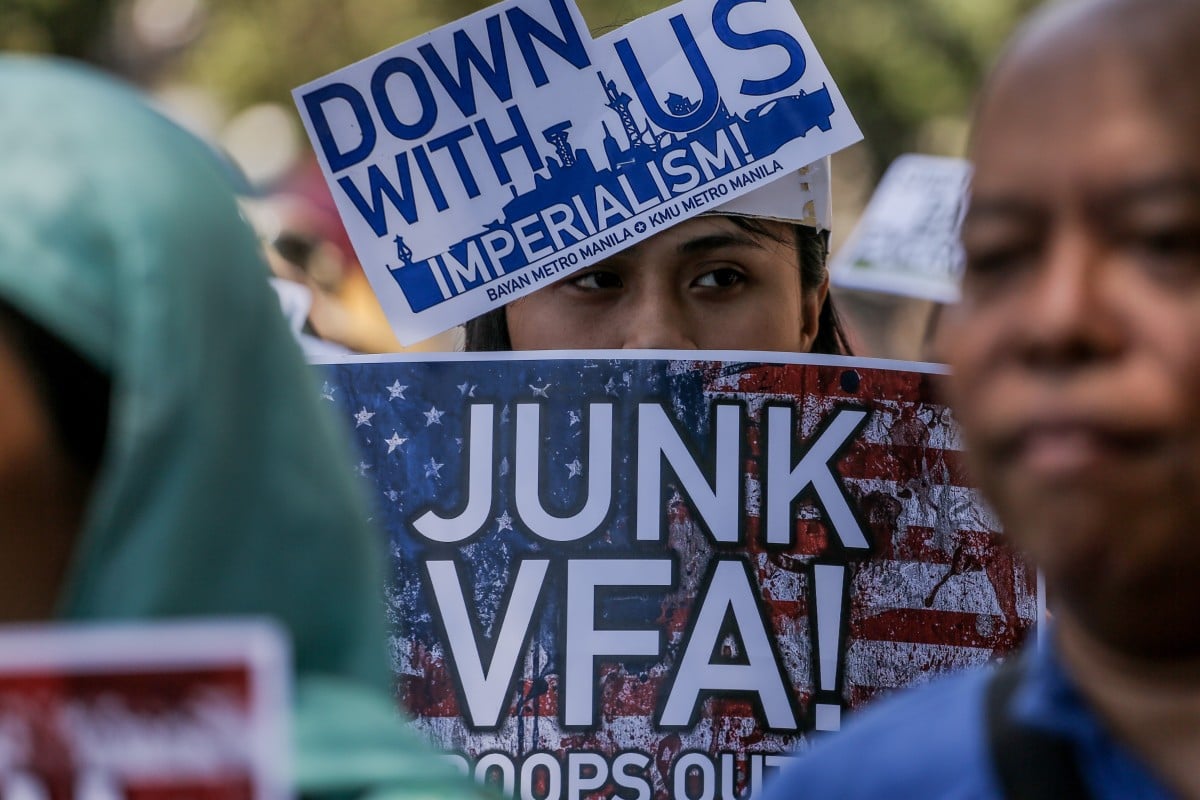
The Visiting Forces Agreement is a key part of one of
Meaghan Tobin Published16 Feb, 2020

The Visiting Forces Agreement is a key part of one of
Southeast Asia’s major security partnerships. Photo: DPA
After years of threatening to abandon the Philippines’ military alliance with the United States, President Rodrigo Duterte last week confirmed plans to terminate the agreement governing the presence of American troops, a key part of one of Southeast Asia’s major security partnerships.
After years of threatening to abandon the Philippines’ military alliance with the United States, President Rodrigo Duterte last week confirmed plans to terminate the agreement governing the presence of American troops, a key part of one of Southeast Asia’s major security partnerships.
The announcement was widely interpreted as an attempt by Duterte to extract concessions from Washington, which regards military cooperation with Manila as crucial to
countering Beijing’s activities in the South China Sea. US President Donald Trump, however, told reporters he had no concerns about the treaty being scrapped.
“I really don’t mind, if they would like to do that,” Trump said on Wednesday. “We’ll save a lot of money.”
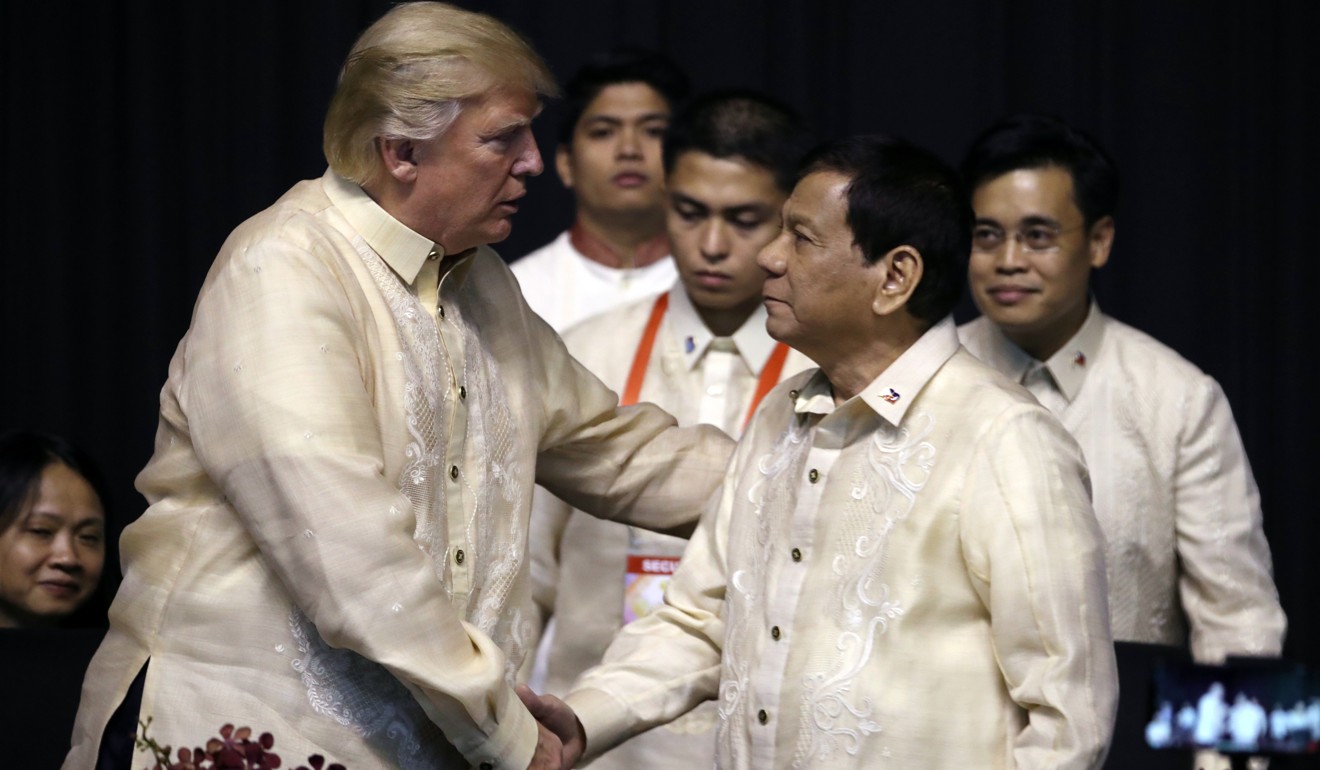
PUS resident Donald Trump with Philippines President Rodrigo Duterte
at an Asean Summit in 2017. Photo: AP
Between 2016 and 2019, the US spent US$550 million on
military assistance to the Philippines, which is also a top recipient of US aid – second only to Indonesia in Asia – receiving nearly US$280 million in 2018, according to the US aid agency.
TO BUY WEAPONS FROM THE USA AND RENT FOR THE SUBIC BASE
The Visiting Forces Agreement (VFA) is one of three pacts governing the US-Philippines defence relationship. Experts warn that without it, the other two – a mutual defence agreement and the 2014 enhanced defence cooperation agreement, known as EDCA – will be substantially less effective. The agreements provide for training and assistance to the Philippines’ military modernisation effort as well as annual joint military exercises
US Defence Secretary Mark Esper last week described the termination of the VFA as “unfortunate” and “a move in the wrong direction”.
“We have to digest it. We have to work through the policy angles, the military angles,” Esper told reporters.
Trump has also pressured US allies Korea and Japan to pay more for their defence partnerships, and experts warn the deterioration of the partnership with Manila,
although initiated by Duterte, could undermine Washington’s status as a security guarantor in the region.
“Trump’s willingness to let the agreement end certainly hurts US credibility,” said Amy Searight, former deputy assistant secretary of defence for South and Southeast Asia who is now senior adviser at the Centre for Strategic and International Studies in Washington. “Being so dismissive of alliance relationships hurts our image in Southeast Asia.”
After Philippines scraps US defence pact, Rodrigo Duterte eyes Russian arms
13 Feb 2020

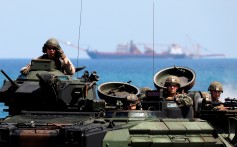
The Philippines was a US territory before independence in 1946, and the US has remained its primary defence partner. However, Duterte has regularly complained about Manila’s relationship with Washington and sought to realign his foreign policy towards Beijing and Moscow since he took office in 2016. Last month, he repeated his threat to end the pact after the US denied a visa to one of his allies,
Ronald Dela Rosa, who oversaw the controversial war on drugs while he was police chief.
Those complaints notwithstanding, Washington was a key ally in Manila’s fight against Isis-linked insurgents in 2017 after they laid siege to Marawi on Duterte’s home island of Mindanao.
Has the US already lost the battle for the South China Sea?
17 Feb 2020

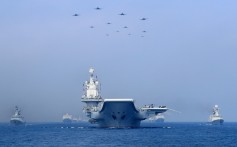
The US has also been a critical ally to the Philippines in countering China’s claims in the disputed South China Sea. Before Duterte confirmed he wanted to terminate the agreement, the Philippines Foreign Secretary Tedoro Locsin Jnr told a televised Senate hearing that: “While the Philippines has the prerogative to terminate the VFA anytime, the continuance of the agreement is deemed to be more beneficial to the Philippines compared to any predicates were it to be terminated.”
Maritime expert Jay Batongbacal told the Philippines media that without the VFA, Beijing could continue building military bases in contested waters.
For Washington, the treaty’s collapse could leave it without a key outpost for force projection in the South China Sea.
Although the US has outposts in Darwin, Guam and Okinawa, its presence in the Philippines is described by the defence establishment as an “immediate footprint”in the South China Sea and a critical part of Washington’s strategy to pursue a free and open Indo-Pacific.
Trump’s comments could also call into question the mutual defence agreement with the Philippines, according to Derek Grossman, senior defence analyst at the Rand Corporation, a Washington think tank.
Trump’s willingness to let the agreement end certainly hurts US credibility Amy Searight, defence analyst
“If the mutual defence treaty collapses, it would be a huge win for China,” Grossman said. “This would send exactly the wrong message to Washington’s remaining allies and partners – that is, you simply shouldn’t trust that the US will defend or assist you against China, and it is therefore right to question the value of the American presence in the Indo-Pacific in the years to come.”
In a commentary for the Chinese state-run tabloid Global Times, Li Kaisheng, the deputy director at the Shanghai Academy of Social Sciences’ Institute of International Relations said he did not believe the scrapping of the pact would see Manila “gravitate towards Beijing” as China was only one of several countries it was pursuing closer ties with.
military assistance to the Philippines, which is also a top recipient of US aid – second only to Indonesia in Asia – receiving nearly US$280 million in 2018, according to the US aid agency.
TO BUY WEAPONS FROM THE USA AND RENT FOR THE SUBIC BASE
The Visiting Forces Agreement (VFA) is one of three pacts governing the US-Philippines defence relationship. Experts warn that without it, the other two – a mutual defence agreement and the 2014 enhanced defence cooperation agreement, known as EDCA – will be substantially less effective. The agreements provide for training and assistance to the Philippines’ military modernisation effort as well as annual joint military exercises
US Defence Secretary Mark Esper last week described the termination of the VFA as “unfortunate” and “a move in the wrong direction”.
“We have to digest it. We have to work through the policy angles, the military angles,” Esper told reporters.
Trump has also pressured US allies Korea and Japan to pay more for their defence partnerships, and experts warn the deterioration of the partnership with Manila,
although initiated by Duterte, could undermine Washington’s status as a security guarantor in the region.
“Trump’s willingness to let the agreement end certainly hurts US credibility,” said Amy Searight, former deputy assistant secretary of defence for South and Southeast Asia who is now senior adviser at the Centre for Strategic and International Studies in Washington. “Being so dismissive of alliance relationships hurts our image in Southeast Asia.”
After Philippines scraps US defence pact, Rodrigo Duterte eyes Russian arms
13 Feb 2020

The Philippines was a US territory before independence in 1946, and the US has remained its primary defence partner. However, Duterte has regularly complained about Manila’s relationship with Washington and sought to realign his foreign policy towards Beijing and Moscow since he took office in 2016. Last month, he repeated his threat to end the pact after the US denied a visa to one of his allies,
Ronald Dela Rosa, who oversaw the controversial war on drugs while he was police chief.
Those complaints notwithstanding, Washington was a key ally in Manila’s fight against Isis-linked insurgents in 2017 after they laid siege to Marawi on Duterte’s home island of Mindanao.
Has the US already lost the battle for the South China Sea?
17 Feb 2020

The US has also been a critical ally to the Philippines in countering China’s claims in the disputed South China Sea. Before Duterte confirmed he wanted to terminate the agreement, the Philippines Foreign Secretary Tedoro Locsin Jnr told a televised Senate hearing that: “While the Philippines has the prerogative to terminate the VFA anytime, the continuance of the agreement is deemed to be more beneficial to the Philippines compared to any predicates were it to be terminated.”
Maritime expert Jay Batongbacal told the Philippines media that without the VFA, Beijing could continue building military bases in contested waters.
For Washington, the treaty’s collapse could leave it without a key outpost for force projection in the South China Sea.
Although the US has outposts in Darwin, Guam and Okinawa, its presence in the Philippines is described by the defence establishment as an “immediate footprint”in the South China Sea and a critical part of Washington’s strategy to pursue a free and open Indo-Pacific.
Trump’s comments could also call into question the mutual defence agreement with the Philippines, according to Derek Grossman, senior defence analyst at the Rand Corporation, a Washington think tank.
Trump’s willingness to let the agreement end certainly hurts US credibility Amy Searight, defence analyst
“If the mutual defence treaty collapses, it would be a huge win for China,” Grossman said. “This would send exactly the wrong message to Washington’s remaining allies and partners – that is, you simply shouldn’t trust that the US will defend or assist you against China, and it is therefore right to question the value of the American presence in the Indo-Pacific in the years to come.”
In a commentary for the Chinese state-run tabloid Global Times, Li Kaisheng, the deputy director at the Shanghai Academy of Social Sciences’ Institute of International Relations said he did not believe the scrapping of the pact would see Manila “gravitate towards Beijing” as China was only one of several countries it was pursuing closer ties with.
Instead, there would be an impact on the South China Sea, he added.
"Washington has repeatedly meddled in regional affairs through various means, such as sending its warships to conduct so-called freedom of navigation operations, and joint military exercises with other claimants, including Vietnam. Without the VFA, US interference with the South China Sea will be constrained,” Li wrote.
The US continuously deploys between 500 and 600 troops in the Philippines, according to Rand. The US presence was dramatically reduced in the early 1990s when lawmakers in Manila moved to shut down two bases in the 1990s which were at the time the largest US military outposts in the western Pacific.
"Washington has repeatedly meddled in regional affairs through various means, such as sending its warships to conduct so-called freedom of navigation operations, and joint military exercises with other claimants, including Vietnam. Without the VFA, US interference with the South China Sea will be constrained,” Li wrote.
The US continuously deploys between 500 and 600 troops in the Philippines, according to Rand. The US presence was dramatically reduced in the early 1990s when lawmakers in Manila moved to shut down two bases in the 1990s which were at the time the largest US military outposts in the western Pacific.
Philippines Defence Secretary Delfin Lorenzana on Thursday said the
annual joint military exercises – called Balikatan, meaning “shoulder to shoulder” in Tagalog – planned for May would take place during the agreement’s remaining 180 days.
“Once the termination is final, we will cease to have exercises with them,” Lorenzana said.
Are Indonesia, Vietnam and Malaysia about to get tough on Beijing’s South China Sea claims? 17 Feb 2020

More distant relations between Washington and Manila could also lead to a
recalculation by other countries in Southeast Asia, especially those whose South China Sea claims overlap with Beijing’s.
Collin Koh, research fellow at Singapore’s S Rajaratnam School of International Studies, said Indonesia and Vietnam could seek closer military cooperation with the US.
Singapore has also been a key defence partner of the US and could expand military cooperation, Koh said.
“On the cusp of the closure of the US military bases in the Philippines in the 1990s, Singapore offered the US access to Changi naval base,” he said. “Singapore has been an ardent supporter of the US military presence in the region.”
Australia also maintains a visiting forces agreement with the Philippines and has in the past, along with Japan, taken part in the annual joint military exercises with the US and the Philippines. Armed Forces of the Philippines Chief of Staff General Felimon Santos Junior said the nation will increase military engagements with these neighbours after the agreement with the US ends, local media reported.
On the other hand, some experts regard the back-and-forth between Trump and Duterte as typical of two leaders known for conducting foreign affairs via dramatic statements on social media, which is ultimately unlikely to result in the dissolution of one of Asia’s longest-standing military partnerships.
China’s ‘great friendship’ with Micronesia grows warmer, leaving US with strategic headache in Pacific 23 Dec 2019
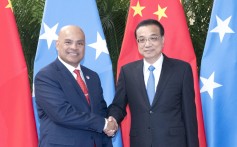
Koh suggested domestic stakeholders in
Manila’s security establishment would not support Duterte scrapping the
Philippines’ military relationship with the US altogether, and that the relationship would endure.
“This defence relationship is a long-standing, proven and deeply entrenched one that has over the decades survived the ups and downs of different administrations,” Koh said. “It’s difficult to imagine the loss of the visiting forces agreement will unravel such close bilateral military ties.”
This article appeared in the South China Morning Post print edition as: Warning over move to end pact on Defence

Meaghan Tobin has nearly a decade of experience spanning journalism and public policy in Washington, Taipei and Beijing. For the Post, she covers geopolitics, diplomacy and policy trends in Southeast Asia and the Pacific.
No comments:
Post a Comment